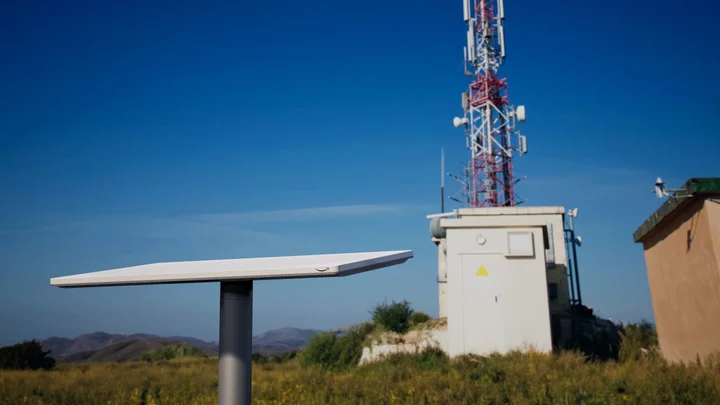Despite its struggles to get Project Kuiper off the ground, Amazon has reached a deal with Vodafone to use its satellite internet system to expand the carrier's 4G/5G cellular networks.
The partnership will tap Project Kuiper to help supply internet connectivity to Vodafone users based in remote areas in Europe and Africa. The aim is to rely on Amazon’s orbiting satellites to supply the internet connectivity in these hard-to-reach regions, rather than building expensive telecom infrastructure on the ground.
“Project Kuiper will connect geographically dispersed cellular antennas back to the companies' core telecom networks,” the companies said. “This means Vodafone and Vodacom will be able offer 4G/5G services in more locations without the time and expense of building out fiber-based or fixed wireless links back to the core networks.”
A consumer- and enterprise-grade receiver for Project Kuiper (Credit: Amazon)To do so, Amazon said it plans on installing Project Kuiper customer terminals alongside Vodafone’s cellular towers. The additional satellite connectivity promises to bolster the capacity for more consistent cellular coverage.
“The companies are also exploring additional enterprise-specific offerings to provide businesses with comprehensive global connectivity solutions, such as backup service for unexpected events and extending connectivity to remote infrastructure,” Vodafone and Amazon added.
The deal represents some positive news for Project Kuiper, which risks falling far behind SpaceX’s competing satellite internet system Starlink. SpaceX is already serving over a million global users, including many consumers, schoolsb and towns based in rural and remote areas.
In contrast, Amazon is still waiting to send the first prototype satellites for Project Kuiper in late Q4. But the company remains confident it can begin beta testing the internet service by the end of 2024 once the first production satellites start going up in orbit.
“And we plan to continue working with local and regional telecommunications operators to help them extend the reach of their networks,” Project Kuiper’s director of business development Naveen Kachroo said in the announcement. The company has previously said a standard terminal to connect to Project Kuiper will cost less than $400. Speeds for the consumer-grade terminal will max out at 100Mbps.

